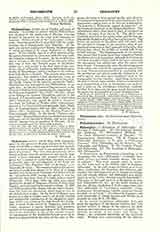

Philomelium, titular see in Pisidia, suffragan of Antioch. According to ancient writers Philomelium was situated in the southwest of Phrygia near the frontier of Lycaonia, on the road from Synnada to Iconium. It formed part of the “conventus” of Synnada. Its coins show that it was allied with the neighboring city of Mandropolis (now Mandra). In the sixth century it formed part of Pisidia, the inhabitants of which pronounced its name Philomede or Philomene. In the Middle Ages it is often mentioned by Byzantine historians in connection with the wars with the Seljukian sultans of Iconium. In the twelfth century it was one of the chief cities of the sultanate; from this time it bore the Turkish name of Ak-Sheher (white city), and today is the chief town of the caza of the vilayet of Konieh, numbering 4000 inhabitants, nearly all Mussulmans, and is a station on the railway from Eski-Shehr to Konieh. The ancient ruins are unimportant; they include a few inscriptions, some of them Christian. In a suburb is the tomb of Nasr Ed-din Hodja, famous for his sanctity among the Turks. Christianity was introduced into Philomelium at an early date. In 196 the Church of Smyrna wrote to the Church of Philomelium announcing the martyrdom of St. Polycarp (Eusebius “Hist. Eccl.”, IV, xix). Seven of its bishops are known: Theosebius, present at the Council of Constantinople (381); Paul, at Chalcedon (451); Marcianus, who signed the letter to Emperor Leo from the bishops of Pisidia (458); Aristodemus, present at the Council of Constantinople (553); Marinus, at Constantinople (680 and 692); Sisinnius, at Niewa (787); Euthymius at the Photian Council of Constantinople (879). In the Greek “Notitiae episcopatuum” Philomelium is first mentioned among the suffragan sees of Antioch in Pisidia, and in the ninth century among those of Amorium in Phrygia. It receives mention until the thirteenth century.
S. PETRIDES

